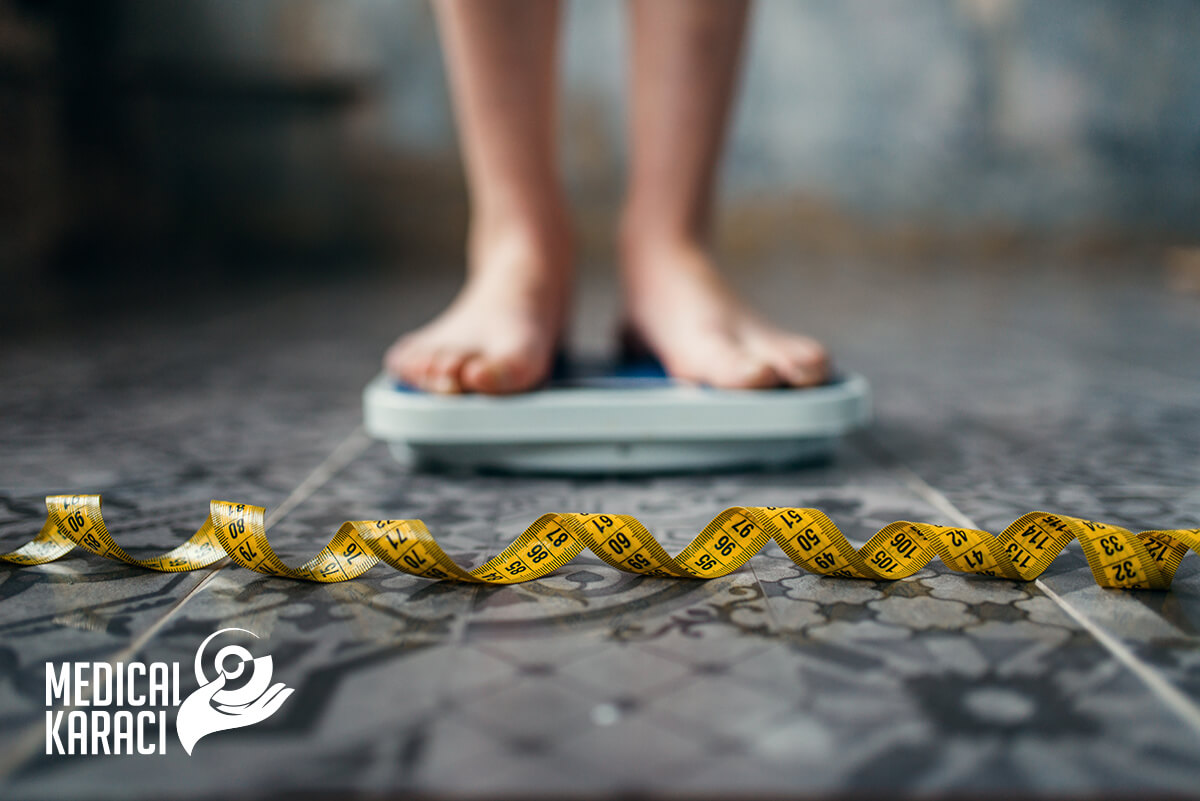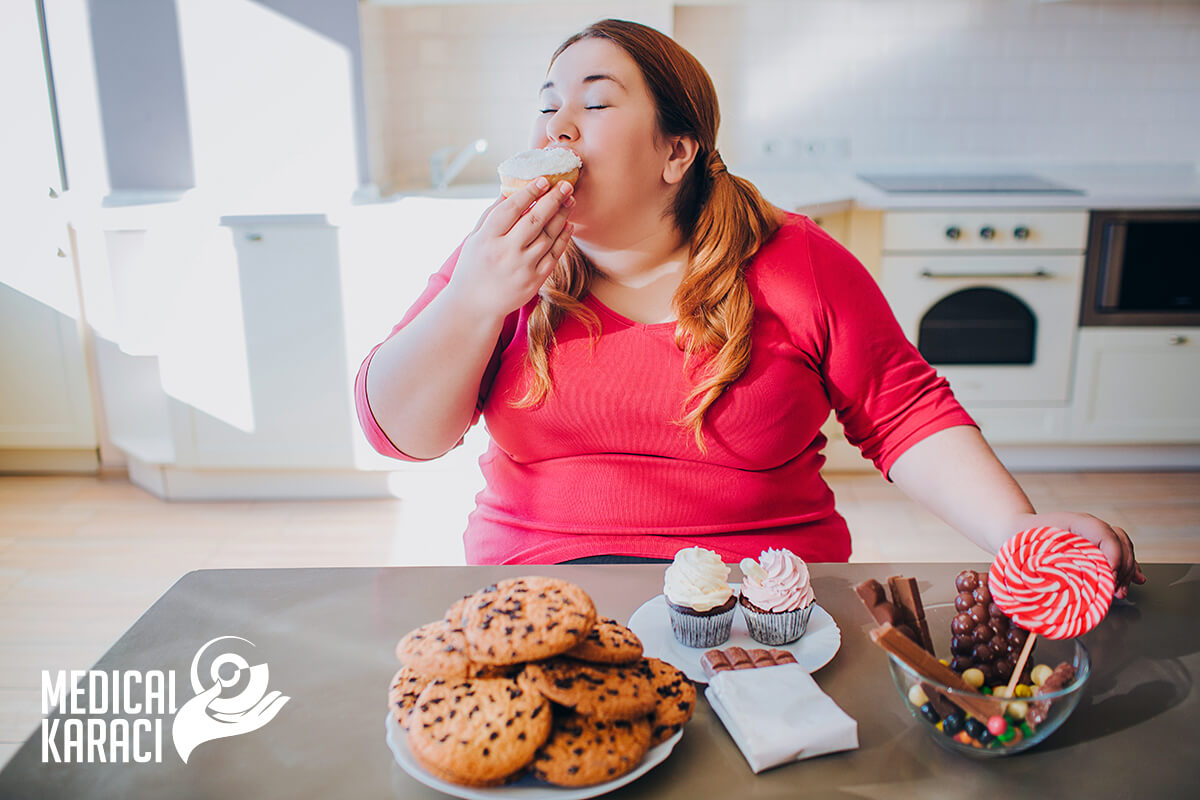Eating disorders are a group of illnesses in which people experience severe disturbances in their eating behaviour, and the associated thoughts and emotions are also atypical. People with eating disorders usually find themselves "over-committed" to food and their body weight.
In many cases, eating disorders co-occur with other mental disorders such as anxiety, panic, obsessive-compulsive disorder, alcohol abuse or drug use. New evidence suggests that heredity may play a role in why some people develop eating disorders, but these disorders also affect many other people who have no previous family history. Without treatment, the emotional and physical symptoms of these disorders can lead to malnutrition, heart problems, and other potentially fatal conditions. Fortunately, with the proper medical help, people with eating disorders can restore proper eating habits and return to better emotional and psychological health.
Sometimes the road to dealing with this addiction is long and difficult, but it is especially important to seek medical help in time, not at a stage when it is too late and/or the eating disorder has managed to inflict lasting damage on the psyche and physique of the affected individual.
Studies show that women who have an eating disorder or have developed a substance use disorder are 4 times more likely to develop the other condition, so they struggle with both the co-dependency and the new eating disorder.
Here we will look at some of the main types of eating disorders, and it is interesting to note that new eating disorders have emerged recently, adding to the list and presenting new challenges to psychologists and all professionals working in this field.
Anorexia - Anorexia nervosa
Anorexia is diagnosed when patients weigh at least 15 percent less than the normal healthy weight expected for their height.
The hallmarks of anorexia include:
- Limited food intake
- The fear of being fat
- Problems with how the body looks
People with anorexia do not maintain a normal weight because they refuse to eat enough, often exercise excessively, obsessively, and sometimes force themselves to vomit or use laxatives to lose weight.
Over time, the following symptoms may develop:
- Menstrual cycle stops
- Osteopenia or osteoporosis (bone thinning) through calcium loss
- Hair falls out, nails become brittle
- The skin dries out and may acquire a yellowish colour
- Mild anaemia
- Severe constipation
- Drop in blood pressure, slowed breathing and pulse
- Internal body temperature drops, causing a person to feel cold all the time
- Depression and lethargy
Bulimia - Bulimia nervosa
Although they can often diet and exercise vigorously, people with bulimia can be slightly underweight, normal weight, overweight or even obese. Bulimia sufferers eat frequently and during these frequent meals sufferers can eat astounding amounts of food. In a short time, they can consume thousands of calories that are high in sugars, carbohydrates and fats. They can eat very quickly, sometimes ingesting food without even chewing it.
During a meal, sufferers feel out of control. After ingesting huge amounts of food, stomach aches and fear of weight gain are common reasons for those who suffer from bulimia to induce vomiting themselves or use laxatives. This cycle is usually repeated at least several times a week or, in severe cases, several times a day.
People suffering from bulimia often go unnoticed for long periods of time by those who are in close proximity around them, but in bulimia there are symptoms that are strongly indicative:
- Chronic sore and red throat
- The salivary glands in the neck and under the jaw become swollen; the cheeks and face often become puffy
- Tooth enamel wears away; teeth begin to decay from exposure to stomach acids
- Constant vomiting causes gastroesophageal reflux
- Laxative abuse causes irritation that leads to intestinal problems
- Diuretics cause kidney problems
- Severe dehydration
- Bulimia can lead to rare but potentially fatal complications, including esophageal ruptures, gastric rupture, and cardiac arrhythmias.
Compulsive overeating
People with compulsive overeating have eating episodes in which they consume very large amounts of food in a short period and feel out of control during the meal. Unlike people with bulimia, they don't try to get rid of the food they've eaten by inducing vomiting or other unsafe practices like abusing laxatives. This binge eating becomes chronic and can lead to serious health complications, especially severe obesity, diabetes, hypertension and cardiovascular disease.
Here are the symptoms that are characteristic of this eating disorder:
- Eating faster than normal
- Eating until you feel full
- Eating large amounts of food when you don't feel physically hungry
- Eating alone because he feels embarrassed by it
- Feelings of self-loathing, depression or intense guilt after each meal
Orthorexia
Orthorexia is the condition of people obsessed with the idea of proper or healthy eating.
Like other eating disorders, orthorexia can lead to severe consequences.
Orthorexia or Orthorexia nervosa is an eating disorder that involves an unhealthy obsession with healthy eating.
Some studies have suggested that people who strive to maintain perfect health for the sake of their career, for example, could be at higher risk of developing orthorexia. Examples are certain professions such as ballet dancers, athletes, etc.
Enthusiasm for healthy eating only transforms into orthorexia when it becomes an obsession that negatively affects daily life, such as extreme weight loss or refusing to eat out with friends.
The negative health effects associated with orthorexia usually fall into one of the following three categories:
- Physical effects - for example, a deficiency of essential nutrients caused by restrictive eating can lead to malnutrition, anaemia or an abnormally slow heart rate. Severe malnutrition can lead to digestive problems, electrolyte and hormone imbalances, metabolic acidosis.
- Psychological effects - people with orthorexia may experience intense frustration when their eating habits are disrupted. Moreover, breaking self-imposed dietary rules is likely to lead to feelings of guilt, self-loathing. Apart from the actual eating, people with orthorexia spend a lot of time weighing and measuring food, planning and thinking about subsequent meals.
- Social effects - the rigid eating patterns in question can make it challenging to participate in social activities that revolve around food, such as dining out with friends. In addition, intrusive thoughts related to food can further complicate social relationships.
For more information, you can call +359895770869.







